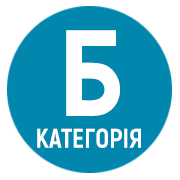INSTITUTIONAL ASPECTS OF THE INTERACTION OF STATE AUTHORITIES IN THE CONSTITUTIONAL COURSE FOR THE EUROPEAN AND NORTH ATLANTIC INTEGRATION OF UKRAINE
DOI:
https://doi.org/10.32689/2522-4603.2023.5.2Keywords:
institutional interaction, constitutional course, European Union, European integration, North Atlantic integration, civil societyAbstract
This article defines the institutional aspects of the interaction of state authorities regarding the implementation of the European integration policy. The work is devoted to the analysis of the integration processes taking place in Ukraine on the way to membership in the European Union, and as a result of the intensification of the development of the rule of law and civil society in Ukraine. Development of theory and work experience on this issue. Finding ways to solve problems related to the integration process. The purpose of the article is to study the constitutional course for the European and North Atlantic integration of Ukraine. The paper states that European integration is the main and constant foreign policy priority of Ukraine, and the further development and deepening of relations between Ukraine and the EU is carried out on the principles of political association and economic integration. The main strategic documents for achieving these goals are the Association Agreement between Ukraine, on the one hand, and the European Union, the European Atomic Energy Community and their member states, on the other hand, and the Ukraine-EU Association Agenda. Attention is focused on the fact that the implementation of integration, first of all, is connected with qualitative transformations within each element included in the system, which raises it to a qualitatively new level. The content of the article determines that the integration of Ukraine into the European space will undoubtedly provide the opportunity to fully create an "internal European market" of scientific and technical developments, free exchange of knowledge, research results, the formation of a unified European policy for the development of the main directions of the development of science and technology in European countries, expansion scope and scale of research, increasing competitiveness and practical use of scientific developments. In order to implement the European integration policy, taking into account global, regional and local political and legal challenges and risks, Ukraine has developed a strong regulatory and legal basis during the last decades. Despite this, the work states that the two main concepts of the systemic work of legal entities regarding the further improvement of the normative field of European integration are the streamlining of the real mechanism of implementation of European integration transformations in the practice of the national state. The article focuses on the fact that today the European integration of Ukraine is taking place in the conditions of large-scale Russian intervention. The war unleashed by the aggressor state, on the one hand, proved the readiness of Ukrainians to defend the independence of their country through its European development, united the Ukrainian nation and strengthened public support for the movement towards the European Union. It was also noted that Ukraine-EU relations largely depend on the world situation. Therefore, complex and unpredictable global processes, phenomena and crisis challenges to one degree or another affect the internal situation in the European Union and Ukraine, as well as the quality and pace of European integration.
References
Консолідовані версії Договору про Європейський Союз та Договору про функціонування Європейського Союзу (2010/С 83/01). URL: https://zakon.rada.gov.ua/laws/show/994_b06#Text
Кандидат на членство в ЄС. URL: https://uk.wikipedia.org/wiki/
Фахурдінова М. Фінансування та поштовх до реформ: що дасть Україні статус кандидата на членство в ЄС. 2022. URL: https://www.eurointegration.com.ua/articles/2022/05/11/7139235/
Засади співробітництва України з Європейським Союзом (Офіційна інформація представництва України у Європейському Союзі) [Електронний ресурс]. – Режим доступу : http://www.ukraine-eu.mfa.gov.ua/eu/ua/556.htm.
Геополітичні та геоекономічні зміни, формовані під впливом російської агресії, та оновлення місця України у світовому просторі. – Центр Разумкова. 2022. С. 9. Режим доступу: https://razumkov.org.ua/uploads/pdf.
Батаренко, А. О. Проблеми та перспективи європейської інтеграції України / А. О. Батаренко //Науковий вісник Інституту міжнародних відносин НАУ. 2014. № 1. С. 34–37.
Малик Я. Європейський Союз / Я. Малик, О. Киричук, І. Залуцький–Львів. 2006. С. 610.
Сльозко О. Європейський вибір України в контексті інтеграції в ЄС. // Україна у світовому економічному просторі / Інст. економіки упр. та госп. права. К.: Таксон. 2008. 246 с. С. 63–81.
Договір про Європейський Союз. Електронний доступ: https://zakononline.com.ua/documents/show/153773___595905
Бухарестський саміт НАТО 2008. Електронний доступ: https://uk.wikipedia.org/wiki/%D0%91%D1%83%D1%85%D0%B0%D1%80%D0%B5%D1%81%D1%82%D1%81%D1%8C%D0%BA%D0%B8%D0%B9_%D1%81%D0%B0%D0%BC%D1%96%D1%82_%D0%9D%D0%90%D0%A2%D0%9E_2008





